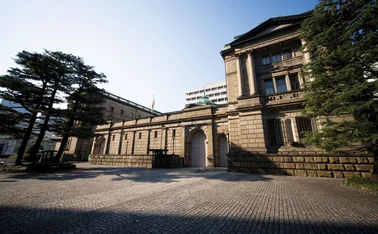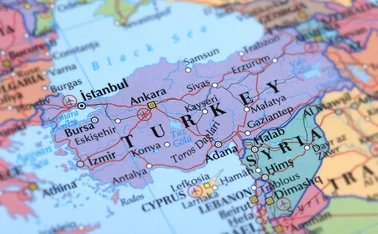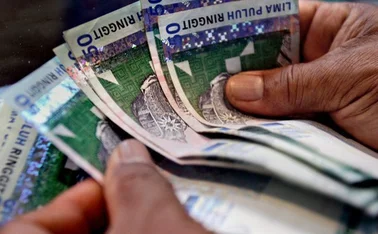
ECB announces 25bp rate raise and QE slowdown for July
September increase may be steeper, as ECB forecasts higher inflation and lower growth

The European Central Bank will lower policy rates and reduce its quantitative easing programme next month, it announced today (June 9).
The ECB said that its governing council had voted to raise its key rates by 25 basis points when it meets on July 6. Several media reports said that some governing council members had voted for a 50bp rise in July. The ECB said its council had voted for a further rate rise to happen in September, saying this could be more than 25bp if circumstances justified it.
Several governing council members, led by chief economist Philip Lane, had successfully opposed rate rises earlier in the year. But the governing council has shifted in favour of tightening policy in the face of growing eurozone inflation.
After it holds its September meeting, the ECB said the council “anticipates that a gradual but sustained path of further increases in interest rates will be appropriate”. It said the pace of its tightening would depend on changes to economic data and its medium-term inflation forecasts.
ECB president Christine Lagarde told the press conference that the rise in rates was “not a step, but a journey”. The governing council also said it would end net asset purchases under the asset purchase programme (APP) on July 1. But it said it would continue reinvesting the principal payments from maturing securities bought under the APP.
It said it would do this “for an extended period of time past the date when it starts raising the key ECB interest rates and, in any case, for as long as necessary to maintain ample liquidity conditions and an appropriate monetary policy stance”.
The ECB said it would reinvest the principal payments from its purchases under the pandemic emergency purchase programme (PEPP) “until at least the end of 2024”. It said it would manage the divestment of the PEPP portfolio “to avoid interference with the appropriate monetary policy stance”.
The ECB also raised its staff projections for inflation and lowered its forecast for eurozone GDP growth. It said inflationary pressures in the eurozone had “broadened and intensified” beyond energy and food prices, saying many prices were increasing strongly.
Frederik Ducrozet, senior Europe economist at Pictet Wealth Management, noted that this was the first time that the ECB’s inflation projections showed medium-term inflation above 2%.
It said the Russian invasion of Ukraine was continuing to place pressure on eurozone prices. Nonetheless, the ECB said that some inflationary pressures were moderating, including energy costs and pandemic-related supply disruptions.
The ECB now predicts annual average headline inflation for the eurozone of 6.8% for 2022, considerably above its March forecast of 5.1%. It said average annual core inflation would reach 3.3% this year, falling to 2.8% in 2023 and 2.3% in 2024.
The ECB now predicts inflation will fall to 3.5% in 2023, again up from its forecast of 2.1% and 2.1% in 2024, marginally up from 1.9%. It forecasts eurozone GDP growth of 2.8% for this year, significantly down from its March figure of 3.7%.
Only users who have a paid subscription or are part of a corporate subscription are able to print or copy content.
To access these options, along with all other subscription benefits, please contact info@centralbanking.com or view our subscription options here: http://subscriptions.centralbanking.com/subscribe
You are currently unable to print this content. Please contact info@centralbanking.com to find out more.
You are currently unable to copy this content. Please contact info@centralbanking.com to find out more.
Copyright Infopro Digital Limited. All rights reserved.
As outlined in our terms and conditions, https://www.infopro-digital.com/terms-and-conditions/subscriptions/ (point 2.4), printing is limited to a single copy.
If you would like to purchase additional rights please email info@centralbanking.com
Copyright Infopro Digital Limited. All rights reserved.
You may share this content using our article tools. As outlined in our terms and conditions, https://www.infopro-digital.com/terms-and-conditions/subscriptions/ (clause 2.4), an Authorised User may only make one copy of the materials for their own personal use. You must also comply with the restrictions in clause 2.5.
If you would like to purchase additional rights please email info@centralbanking.com







